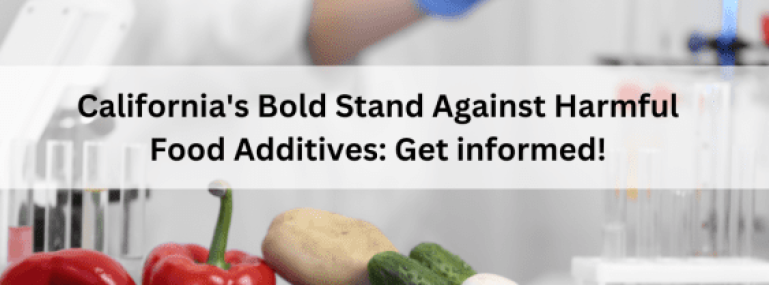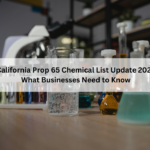On May 15, 2023, the California State Assembly successfully passed the nation’s pioneering bill, prohibiting the manufacture, sale, and distribution of foods containing certain additives, namely red dye No. 3, titanium dioxide, potassium bromates, brominated vegetable oil (BVO), and propylparaben. Presently, the bill awaits consideration in the California Senate. The targeted additives for the ban were selected due to their known potential to cause health problems or their unverified status as potential health hazards upon consumption.
The following five chemicals have been banned, and their associated health risks are outlined below:
- Red Dye No. 3 has been associated with cancer and behavioural issues in children. It is present in over 2,000 food products, including various types of candies, cookies, and foods marketed towards children. In 1990, the FDA prohibited many applications of this dye, citing cancer risks. Since 1994, the European Union has limited the use of Red No. 3 to candied and cocktail cherries exclusively.
- Brominated vegetable oil has the potential to accumulate in the body and has been linked to various health concerns, including impacts on the nervous system. It is banned in the EU for use in processed foods.
- Potassium bromate has been linked to cancer, but it has not undergone a safety review by the FDA since 1973. The EU prohibited its use in processed foods in 1990, and since then, it has been listed in California’s Proposition 65 as a potential cancer-causing agent.
- Propyl paraben has not undergone thorough safety review by the FDA. It has been associated with disruptions to the hormone and reproductive systems, including reduced sperm counts. While banned in EU foods since 2006, it is still utilized as a preservative in the US.
- Titanium dioxide has been linked to DNA damage and harm to the immune system. In 2022, the EU prohibited its use in foods for sale, yet it is still permitted in food sold within the US. This chemical is found in popular snacks like Skittles.
What is the intent behind California’s food warnings?
Several foods contain chemicals listed on Proposition 65 due to their potential to cause cancer, birth defects, or other reproductive issues. Proposition 65 mandates businesses to determine whether a warning is necessary regarding exposure to listed chemicals, thereby regulating this aspect.
Commonly found chemicals in such foods listed in Proposition 65 encompass:
- Acrylamide primarily formed in plant-based foods when subjected to browning through frying, roasting, grilling, or baking. A warning indicates that consistent consumption of the food may elevate the risk of cancer compared to foods with lower acrylamide levels.
- Inorganic arsenic, naturally present in the Earth’s crust and potentially absorbed by certain crops such as rice. Arsenic might also be found in Indian and Chinese herbal medicines. Additionally, small amounts of arsenic can be absorbed by edible seaweed like hijiki.
- Bisphenol A (BPA), used in coatings for cans, lids, bottle caps, and polycarbonate plastic items. While becoming less prevalent, BPA can still leach into food and beverages from metal containers.
- Cadmium, present in various fish, shellfish, and organ meats, with certain vegetables like spinach absorbing it from cadmium-rich soils.
- Di(2-ethylhexyl) phthalate (DEHP), added to plastics for flexibility and gradually released into some foods and drinks from plastic packaging.
- Lead, found in certain dietary supplements, imported spices like turmeric, and historically, in imported candies with chili and tamarind.
- Mercury, accumulating in specific fish and seafood. Varieties with high mercury levels include king mackerel, sharks, tilefish (from the Gulf of Mexico), swordfish, marlin, bigeye tuna, bluefin tuna, and orange roughies. Mercury might also be present in dietary supplements and traditional medicines.
Through ComplianceXL’s comprehensive compliance management platform, businesses can conduct due diligence, engage suppliers, and furnish documentation to clients to adhere to the requirements set by the Toxic Food Chemicals Banned regulations. Moreover, businesses can maintain awareness programs for customers.





